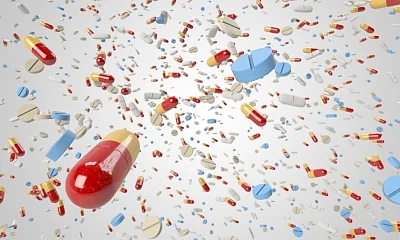As a physician, it takes me a mere 10 seconds to prescribe an antibiotic. However, it can take more than 10 minutes for me to explain to a patient how to take the antibiotic correctly or why an antibiotic is not required for a specific infection. I believe this is vital if we are to curb the spread of one our biggest global healthcare nightmares: antibiotic resistance. It is the overuse and underuse of antibiotics that has fuelled this phenomenon of antibiotic resistance, which is when bacteria change their characteristics so that a drug no longer works on them.
Most people know that antibiotics are powerful, lifesaving medicines that are effective against several infections. Almost everyone will be prescribed an antibiotic course at some point in their life, which makes it just as important for everyone to know the right way to take (or not take!) antibiotics. Here are three things you must know:
Antibiotics Do Not Work Against Viral Infections
Different antibiotics work in different ways, but they all accomplish one singular task: they kill bacteria. They are not effective against viruses that are often responsible for everyday illnesses such as the common cold and flu. People with a good immune system are able to fight off non-serious viral infections without any medication, which makes taking an antibiotic completely unnecessary.
Antibiotics should be given only for bacterial infections. In a few cases, when people who are immunocompromised (that is, they have a weak immune system) get a viral infection, they may be prescribed an antibiotic to prevent a secondary bacterial infection.
You Must Complete the Prescribed Course of Antibiotics

All antibiotics must be taken according to a prescribed schedule, in terms of their frequency, dosage and duration of treatment. Since most antibiotics start combating an infection soon after they are taken, people start to feel better even before they have completed their treatment. It is vital for patients to finish their whole course of treatment. If not, the bacteria that survive the shortened course of antibiotics have time to ‘recover’, multiply and resist any subsequent treatment with the same drug. Completing an antibiotic course therefore helps to prevent a recurrence of the infection and the emergence of antibiotic resistant bacteria.
Do Not Self-Medicate With Antibiotics or Share a Prescription
Many people use an old prescription to buy more antibiotics if they develop the same infection again. Or they share their unused ‘leftover drugs’ with someone else who may seem to have a similar infection. Both these practices are wrong and contribute to the menace of antibiotic resistance.
Only a doctor can decide whether the new infection is a bacterial or a viral one, and then recommend the right treatment, which may or may not include antibiotics. The doctor is also aware of infections that may be prevalent in the area at any particular time, example the seasonal flu, and is therefore in a better position to prescribe the right treatment.
Taking antibiotics when not needed may not only kill the good microbes in your body but also promote the growth of resistant bacteria.
I would like to make the Indian public fully understand how to consume antibiotics the right way. Each one of us must play our part in curbing antibiotic resistance and encourage others to do the same. Antibiotics are ‘friends’ and lifesavers, but our continued misuse is beginning to make them an ‘enemy’ by fuelling the problem of antibiotic resistance. This can cause us to lose one of our best weapons in the fight against infectious diseases. We do not have many new antibiotics in the pipeline, so it is imperative that we do our best to ensure that the antibiotics we have are effective for generations to come. Or we may go back into an era when even a common Strep throat infection could turn deadly.
(Dr Subramanian Swaminathan, is an Internal Medicine and Infectious Diseases Consultant at Global Hospital Chennai/Bengaluru)
(At The Quint, we are answerable only to our audience. Play an active role in shaping our journalism by becoming a member. Because the truth is worth it.)
